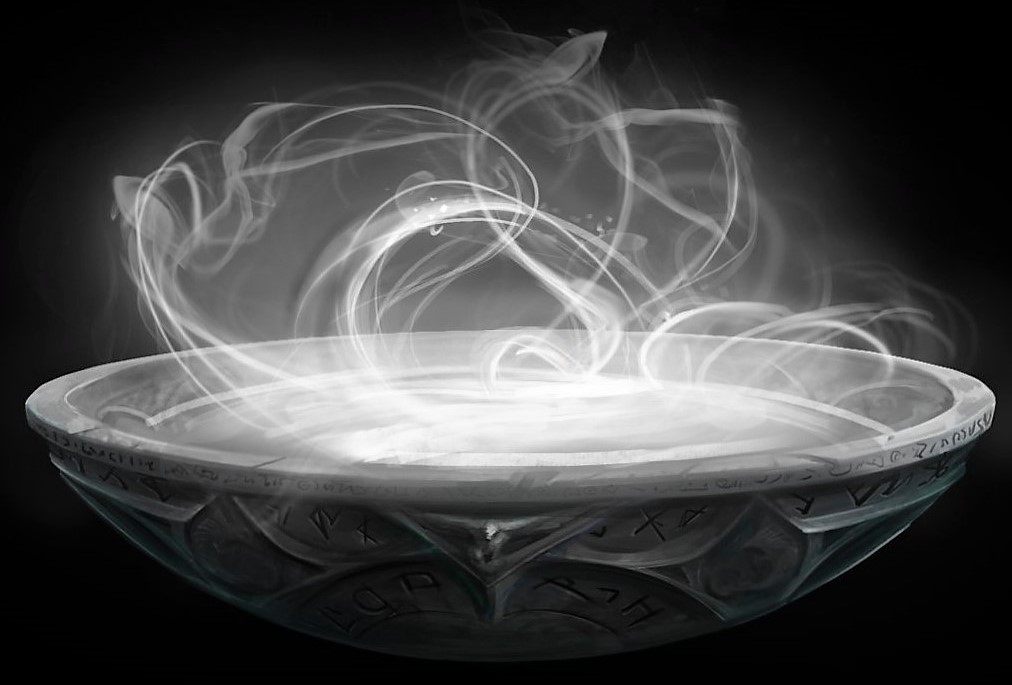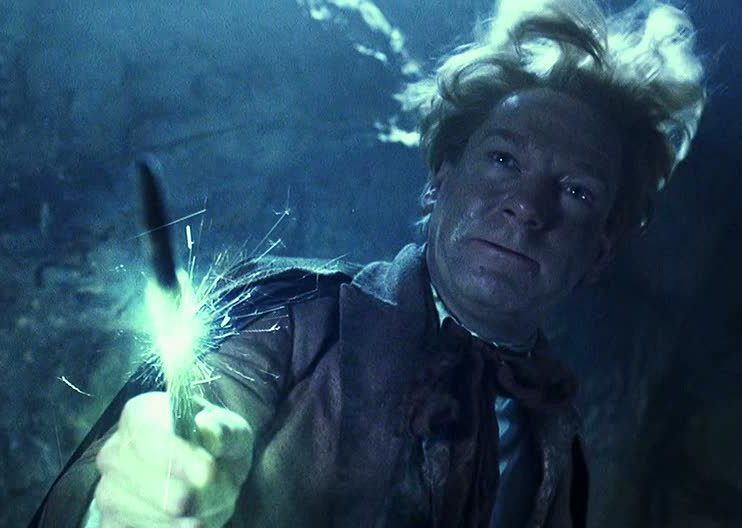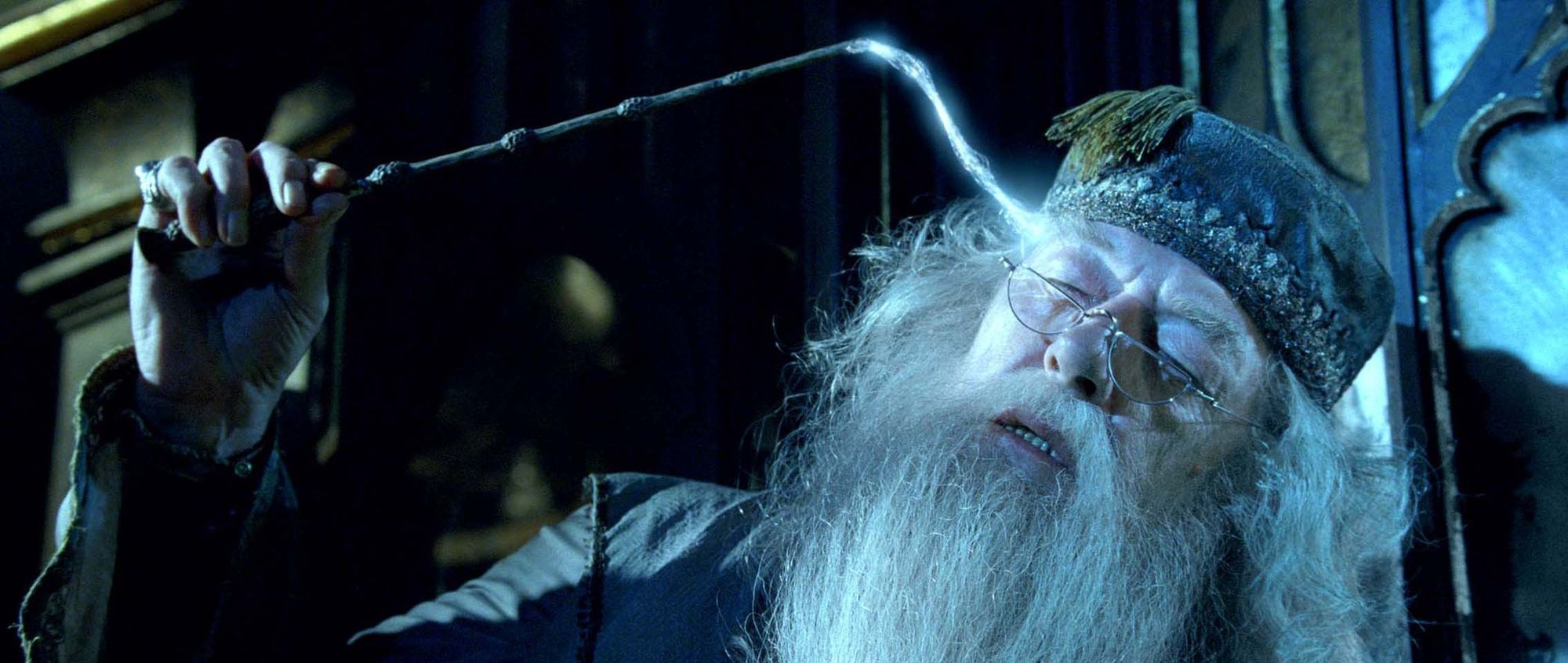Announcements
Welcome to Charms 301!
Please read the following FAQs before joining the class:
When will my assignment be graded?
Charms receives a high volume of assignments submitted each day, and our team is composed entirely of volunteers with real-world obligations. We will not prioritize your assignment over anyone elses. I ask that you be understanding and patient.
If you look in your gradebook, you will be able to see where your assignment is in the grading queue. If you notice that your assignment has not moved at all in the queue after a week, then you may message Professor Laurel or the Head Student, Britini, to look into the issue.
What do I do if I have a question about an assignment?
Please feel free to reach out to any of our PAs with your questions! Just remember: 1. PAs will never give you the answer to a question. They are here to assist you in completing your work; not to do your work for you. 2. If you have any questions or need help, it is always best to ask before you submit your assignment! Keep in mind: Blank answers are an automatic zero; it is better to always try your best!
If you have a question about an assignment that has already been submitted, please send a private owl directly to either the Head Student, Britini, or to Professor Laurel along with your Grade ID for the assignment (this can be found in your gradebook).
If you have any other questions or comments, please do not hesitate to reach out to Professor Laurel or the Head Student, Britini!
Lesson 8) Memories & Magic
Last week we discussed emotions and emotion-affecting magic, the second type of mind-affecting charm. We learned and practiced two particular emotion-affecting charms, the Cheering Charm and the Encouragement Charm. Last week also marked the first time you could practice Third Year Charms spells on a partner due to the relatively transient nature of emotion (hence the minor backfires of the emotion-affecting charms you learned).
Students in the past have experimented with memory-affecting magic using books that are quite easily accessible in the Hogwarts library. We would rather teach you the fundamentals in the safe space of the classroom and instruct you in the proper use of such spells so that you do not follow in their footsteps and harm yourself or others. Do not take this lesson lightly, and do NOT attempt to practice these spells without proper supervision and approval; mistakes with memory-affecting charms can cause irreparable damage to the mind.
Memory
Just before your midterm a few weeks ago, we asked you to practice sifting through memories of your early childhoods. Hopefully you found this to be a painless and fun exercise; though perhaps frustrating at times, it is a little demonstration of the limitations of our memories.

Memory can be defined as the encoding, storage, and retrieval of information, a process that takes place in the brain for human beings. We will not delve into the physiology of memory since it is not particularly important for our spellcasting, but know that the creation and access of memory involves nearly every part of our brains at some point during the process depending on the memory we’re storing. Memories can be classified in several ways, including how long ago the memory was created (short term vs. long term) and the time the memory takes place (prospective vs. retrospective). While both of these classifications are interesting and worth learning about, neither are particularly important in the context of memory-affecting magic.
The method of memory classification we will focus on depends on the type of information being stored. Thiscan be divided into two broad categories: declarative memory and procedural memory. Declarative memory stores the information we might typically consider to be memory. This includes recollection of particular past events, pleasant or unpleasant. Declarative memory is itself broken down into two groups. The memories you considered during your exercises a few weeks ago are called “episodic memories” since they are individual episodes we are able to store and recall, and are a subcategory of declarative memory. Other knowledge not dependent on a particular time or place is also included in declarative memory: trivia facts, mathematics, identity, facial recognition, and our entire vocabulary. This information that can be recalled quickly is called “semantic memory.” Semantic memory can often be tested with theoretical examinations of a particular topic, since it deals exclusively with theory and recall of information.
Procedural memory is a little more difficult to understand but is no less important. Consider, for example, learning the proper wand movements for a new spell in class. At first you might fumble around and make mistakes in the precise placement of your wand. Once you are able to make the proper wand movement, it may take more practice to get it right every time, and even more to be able to do it while concentrating on a proper color or feeling as well as the target, saying your incantation, and willing magical energy to come out. This same development -- from fumbling to fluency -- is true of catching a ball, writing, or playing a musical instrument. Practice allows us to reinforce procedural memory and access it more quickly in the future. Procedural memory is sometimes called “muscle memory,” true in part since it helps us remember how to move our muscles in repeating tasks we’ve performed, a misnomer in part because procedural memory is critical in the acquisition of any skill even if it doesn’t involve muscles. This is the “how” of memory, often tested in more practical examinations.
When we are born, our declarative memory is practically empty. We have no sense of identity or social expectation, let alone knowledge of how the world operates. That is a phase in our lives that philosopher John Locke called the “tabula rasa,” or “blank slate.” Our procedural memories, on the other hand, are not blank. Instincts and reflexes (or “innate procedural memories”) drive newborns to cry and breathe when they’re born, sleep (though never when we want them to), and obtain food despite never having done so before. They are able to do so even though they have never practiced these particular skills. As we grow, so do our declarative and procedural memories. Long-term episodic memory typically doesn’t develop until around age three (as you probably noticed in your recollection exercise), but semantic memory can start much earlier with recognition of colors, language, and familiar faces.
Pensieve
The pensieve is a device used to store episodic memories in perfect condition and view them at any later time. It is typically shaped like a bowl, which is then inlaid with runes and charmed to allow others to view the memories it contains. The water that holds these memories need not come from a magical source, as the charms placed on the pensieve are sufficient for full functionality. Pensieves can be extremely pricey and are rather hard to obtain, but we have requisitioned one from the Ministry of Magic for use this week. It will come pre-stored with many memories, which should allow you to both experience the pensieve and practice your Memory-Extraction Charms on it.

To view the memories within a pensieve, simply lean your head down into the bowl until the liquid completely covers your forehead; at that point, the magic within the runes can access synaptic connections within your mind and allow you to view the memories from a third-person observer perspective. It is therefore possible to explore a memory and notice magically enhanced details the original observer could not have seen (e.g. something within another room). Memories will often come in reverse order (so the most recently added memory will appear first), but if you are concentrating on a particular thought, emotion, or memory of your own, the pensieve may instead present the memories most relevant to your focus.
Ordinarily the memories of another can only be viewed with an advanced offensive magic known as “legilimency” (a topic that we will not cover today). Be warned: once a memory is in the pensieve, it no longer “belongs” to you. Anyone may view it in the pensieve and even steal it from there. Pensieves also allow memories to be modified within them; the precise technique is quite complicated and tedious, so we will not cover it today.
Memory-Affecting Magic
Memory modification is an extraordinarily complex and risky branch of magic. While the use of memory modification is not banned by the Ministry of Magic, backfires or improper use of memory-affecting charms can have devastating consequences, including memory lapses, hallucinations or confusion, insanity, and complete erasure of episodic or declarative memory.
Memory-affecting magic works by targeting and modifying the episodic memory of yourself or another person. We are not yet able to modify semantic or procedural memory, though modification of episodic memory often precipitates a change in semantic memory. To understand why, consider an individual who has just had their memory modified to believe they received low marks on all Charms assessments this year, despite the fact that they actually passed many of them with flying colors. While perhaps they considered themselves a spectacular Charms student before, the change in episodic memory might cause them to believe they are actually a poor Charms student, thereby modifying their identity (part of semantic memory).
In that same manner, when memory is removed or erased, there is a brief period of confusion when an individual’s semantic memory has no evidence to back it up or examples to call on, during which it will work to reorder itself. Identity is usually the first part of semantic memory that will change since it relies so heavily on an individual’s past experiences. Speaking, reading, and writing may not be affected at all (though some individuals, particularly visual learners whose semantic memory relies on images from their episodic memory, have far more difficulty retaining these skills).
For all the precision we claim that it has, tampering with memory involves a fair bit of guesswork and error. Removing one memory might accidentally remove a similar or related memory; a new false memory might accidentally conflict with other deeply held beliefs or memories, revealing the ruse at best and driving the target insane at worst. It is for these reasons that we ask you to be extremely cautious with memory-affecting magic. It is also worth noting that memory-affecting magic may not work on a target whose mind is defended with Occlumency, so investing some time into learning and practicing that particular branch of magic in later years might be wise.
The following three charms can be found in various textbooks in this library and many others around the country. You are to practice ONLY the Memory Extraction Charm, and only on the pensieve (simply extract the memory so it condenses at the tip of your wand, then return it to the pensieve by placing your wand into the liquid and releasing your concentration -- don’t put the memory in your own head). Once you have mastered its use on the pensieve, you may attempt to extract one of your own memories (making sure to deposit the memory back in your head or in the pensieve). The other two charms you'll learn today can have permanent and severe consequences if performed even slightly incorrectly. You are to learn their theory only; any student practicing or performing them without Ministry authorization will be expelled and likely imprisoned for improper use of magic.
The Forgetfulness Charm (also known as the Memory Charm)
Incantation: Obliviate (oh-BLI-vee-ate)
Wand Movement: Point your wand at the forehead of your target and move it in slow, clockwise circles, as if erasing a chalk board.
Willpower: Moderate.
Concentration: Very high; Concentration should be maintained on the memories to be removed. Keep in mind the spell's designated target.
The Forgetfulness Charm is a popular memory-affecting charm frequently used by Ministry obliviators (whose name comes from this spell) to remove memories of the wizarding world from Muggle minds. To cast the spell, the user needs to understand the memories that are to be erased and concentrate on those. The more precise the caster’s concentration, the fewer unintended side effects will result. Casting many Forgetfulness Charms on one target in a short time will likely cause severe confusion in the target. Note that this spell does not truly erase memories but merely encapsulates an existing one within white filler, preventing the target from accessing or extracting the memory within the whitewash (since it cannot be separated from its surrounding bundle); there are cases where a target has successfully retrieved part or all of their forgotten memories, but they are few and far between.
Perhaps the most famous backfire of the Forgetfulness Charm occurred in the Chamber of Secrets, when Gilderoy Lockhart attempted to cast it with a faulty wand, resulting in his permanent altered state of mine
A backfire with this spell is extremely dangerous; due to loss of precision, the target’s entire episodic memory is forgotten, typically irretrievably. This can cause a breakdown in much of the target’s semantic memory, and occasionally affects procedural memory as well. Backfires have been known to return their targets to infantile, tabula rasa states.
You are NOT to cast this charm without prior Ministry approval.
The False Memory Charm
Incantation: Caput Infidum (CA-poot In-FEE-dum)
Wand Movement: Clockwise circle with a small inward swish on the left side followed by a flick.
Willpower: High.
Concentration: Very high; Concentration should be maintained on the memory to be inserted. Keep in mind the spell's designated target.
The False Memory Charm is a popular complement to the Forgetfulness Charm to fill in gaps left in altered memory. The false memories it implants will appear highly believable to its target when cast properly and are often difficult to detect even if the target is expecting it, since it seems no different than any other memory (though if the memory is odd enough, the target might assume they dreamed it). Note that this spell does not actually create knowledge but merely transfers thought from one individual and stores it as memory in the other.
A backfire with this spell might cause too much or too little memory to be created, causing side effects ranging from confusion to insanity depending on how severely the spell backfires. The spell becomes more likely to backfire the more memory that is created, so caution is advised. This grave risk of backfire is one of several reasons we don’t implant you all with episodic memories of these classes and give you free time instead.
Note that this charm is extremely difficult to cast correctly. We include it here to help you understand the workings of memory charms. We do not expect you to succeed in casting it, and you are NOT to cast this charm without prior Ministry approval.
The Memory Extraction Charm
Incantation: Animus Exorire (AH-nee-moos Ex-O-ree-ray)
Wand Movement: Place wand on temple (or surface of pensieve) and pull away slowly.
Willpower: Very high.
Concentration: Moderate; Concentration should be maintained on the memory or type of memory to be extracted (for example, an image of the memory, “all memories contained within the source,” or “the memories that used to be mine”). Keep in mind the source of the memory (your head or the pensieve).
The late Professor Albus Dumbledore using the Memory Extraction Charm
The Memory Extraction Charm is useful when combined with a pensieve. Memories come out as a highly soluble, silvery, light liquid that remain at the edge of your wand until you cease concentrating. To place the memories back into your own mind, touch the tip of your wand to your head before losing concentration (and place the tip of the wand inside a pensieve's liquid to place the memory in the pensieve). If concentration is lost too soon, the memories will dissipate into the air. When this charm is cast wandlessly, extracted memories will come out as solute within liquid leaving the body (usually from the eyes in the form of tears).
Unlike with the Forgetfulness Charm, extracted memories cannot return to your mind unless they are viewed or restored from the pensieve. Also remember that many of the episodic memories you store can become more difficult to recall as time passes or if you attempt to forget them, giving them a grainy or fuzzy appearance when viewed from a pensieve. Note that this spell can only be cast on yourself or a pensieve (and only you can place new memories in your own mind with this charm), since the body’s natural magical barrier is extraordinarily strong in preventing memory extraction.
The backfire to improperly casting this spell is partial or excess extraction (creating odd blanks in your memory). It can also cause the memory to disperse and become retrievable only in tiny bits and fragments (and thus become essentially irretrievable).
This week you'll have a longer worksheet to complete and an optional extra credit assignment about your experience with the pensieve.
Image credit: Psychology Research Net, Harry Potter Wiki
- CHRM-201
Enroll
-
Lesson Eight Worksheet
Assignment -
Into the Pensieve!
Essay
-
Britini
Head Student
-
Will Bryce
Professor's Assistant




